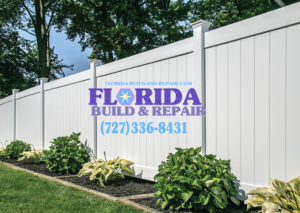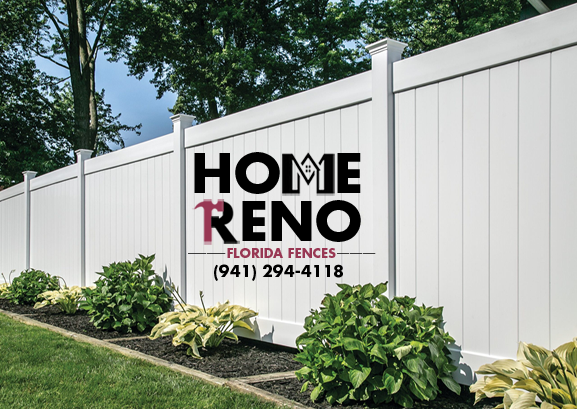Florida Privacy Fence Contractor Tips: Choosing the Best Materials
- Privacy Fence Contractors Dania Beach, Privacy Fence Contractors Hallandale Beach, Privacy Fence Contractors Hollywood, Privacy Fence Contractors Miramar, Privacy Fence Contractors Pembroke Park, Privacy Fence Contractors Pembroke Pines, Privacy Fence Contractors West Park
Florida’s unique climate presents specific challenges for privacy fences, requiring homeowners to carefully consider their material choices. With high humidity, intense sun exposure, occasional hurricanes, and in coastal areas, salt spray, selecting the right materials becomes crucial for longevity and performance. This comprehensive guide explores the best privacy fence materials for Florida’s demanding environment, along with expert tips from contractors on ensuring successful installation.
Understanding Florida’s Climate Challenges for Fencing
Before selecting materials for your privacy fence, it’s important to understand how Florida’s climate affects different fencing options. High humidity can accelerate degradation in certain materials, causing warping, rot, and mold growth. Wood, for example, may deteriorate rapidly if not properly treated, while metal fencing is vulnerable to rust without appropriate protection. Additionally, Florida’s hurricane season demands materials and installation methods that can withstand strong winds.
The ideal fencing material for Florida should resist:
- Moisture damage and humidity effects
- UV radiation and heat exposure
- Mold, mildew, and algae growth
- Insect damage, particularly termites
- Storm-force winds
Top-Recommended Materials for Florida Privacy Fences
Vinyl Fencing: The Florida Favorite
Vinyl consistently ranks as the top choice among Florida fence contractors for privacy applications, and for good reasons. This durable synthetic material offers exceptional resistance to Florida’s harsh climate conditions.
Advantages of Vinyl Privacy Fences
Vinyl fencing is particularly well-suited to Florida’s climate because it:
- Resists moisture damage, rot, and pest infestation
- Maintains color consistency throughout with no fading or chipping
- Requires minimal maintenance with no painting or staining needed
- Can withstand hurricane-force winds up to 130 mph when properly installed
- Offers clean, consistent appearance for years after installation
Reputable contractors emphasize that quality matters when selecting vinyl fencing. Premium vinyl fencing should be made from virgin vinyl rather than recycled materials, as this ensures maximum structural integrity during extreme weather events. Recycled vinyl may compromise the fence’s ability to withstand hurricane-force winds—a critical consideration for Florida homeowners.
Maintenance Requirements
One of vinyl’s primary selling points is its minimal maintenance needs. Unlike wood, vinyl fencing typically only requires:
- Occasional hosing down to remove dirt and debris
- Simple cleaning with soapy water for removing mold or mildew buildup
- No painting, staining, or sealing throughout its lifespan
This makes vinyl an ideal choice for homeowners who want a low-maintenance solution that looks great year after year.
Wood Fencing: Classic Appeal with Special Considerations
Despite the challenges posed by Florida’s climate, wood remains a popular choice for privacy fences due to its natural beauty and customization options.
Best Woods for Florida Privacy Fences
Not all wood types perform equally in Florida’s climate. Contractors recommend:
- Ground-contact pressure-treated pine, which offers good resistance to moisture and insects when properly treated
- Western red cedar, prized for its natural oils that provide some resistance to rot and insects
Customization Advantages
Wood offers unparalleled aesthetic versatility, allowing homeowners to:
- Select from various styles and designs
- Paint or stain to match property aesthetics
- Choose different top edge styles to complement architectural details
- Create a truly custom look that other materials may not provide
Special Requirements for Florida Installation
When installing wood privacy fences in Florida, contractors emphasize several important considerations:
- Use heavy-duty, powder-coated gate hardware to reduce rust and maintain appearance
- Apply wood preservatives around the base of posts to prevent rotting
- Ensure proper pressure treatment of all wood components
- Plan for regular maintenance including staining or painting every 2-3 years
Aluminum and Chain Link: Alternative Privacy Solutions
While vinyl and wood are the primary recommendations for complete privacy fences, other materials offer partial solutions or can be adapted for privacy needs.
Aluminum Fencing Benefits
Aluminum fencing offers significant advantages in Florida’s climate:
- Excellent resistance to rust and corrosion, particularly valuable in coastal areas
- Powder-coating provides additional protection and aesthetic appeal
- Low maintenance requirements with only occasional rinsing needed
- Lightweight yet durable construction
While traditional aluminum fencing doesn’t provide full privacy, contractors can install aluminum frames with privacy slats or panels for enhanced screening.
Chain Link with Privacy Options
Chain link represents the most economical fencing option and can be adapted for privacy:
- Durable and withstands Florida’s humid climate well
- Can be fitted with privacy slats or windscreen fabric
- Most budget-friendly option that still offers longevity
- Requires minimal maintenance
Selecting a Qualified Florida Fence Contractor
Even the best materials will fail prematurely if improperly installed. Choosing the right contractor is essential for a successful privacy fence project in Florida.
Verify Credentials and Experience
Before hiring any fence contractor in Florida, experts recommend:
- Confirming they hold proper licensing and insurance appropriate for your area
- Verifying they have specific experience with privacy fence installation in Florida’s climate
- Checking how long they’ve been operating in your specific region
- Ensuring they understand local building codes and HOA regulations
Florida Build And Repair Privacy Fences emphasizes that skipping the research step is one of the most common mistakes homeowners make, potentially leading to hiring someone who might “overpromise and underdeliver”.
Review Past Work and References
Quality contractors should readily provide:
- References from previous clients with similar projects
- A portfolio of completed privacy fence installations
- Evidence of experience with your preferred fencing material
- Reviews and ratings from independent sources
As Florida Build And Repair Privacy Fences recommends, “Reputation is a reliable indicator of a contractor’s work quality. A company with many positive reviews and a solid reputation will likely deliver high-quality services”.
Get Detailed Written Agreements
A comprehensive written agreement is essential and should include:
- Complete material specifications including brands and grades
- Installation details and timeline
- Warranty information for both materials and workmanship
- Payment schedule and terms
According to Florida Build And Repair Privacy Fences, “Relying on a verbal agreement leaves too much to chance. A proper fence installation requires a written agreement that protects both you and the contractor”.
Installation Best Practices for Florida Privacy Fences
Property Line Verification
Before any installation begins, contractors emphasize the importance of:
- Having property lines properly marked or surveyed
- Not assuming property boundaries based on existing structures
- Communicating with neighbors about fence plans
Florida Build And Repair Privacy Fences notes, “Ensuring the placement of your fence is within your property lines is a crucial part of your fence installation”.
Permit and Regulation Compliance
Florida fence installations are subject to various regulations:
- Local building codes that may restrict fence height and placement
- HOA guidelines that might dictate material, style, and color
- Special requirements for corner lots and waterfront properties
- Specific rules for fence setbacks from property lines
Contractors advise, “Whether you live in a community that operates under a Homeowners Association (HOA) or you’re in a neighborhood that is only subject to local city and county government, there will most likely be specific rules and restrictions that will affect your new fence installation”.
Conclusion: Making the Right Choice for Your Florida Privacy Fence
When selecting materials for a privacy fence in Florida, vinyl emerges as the top recommendation from contractors due to its exceptional durability, low maintenance requirements, and resistance to Florida’s challenging climate. While it represents a higher initial investment than some alternatives, its longevity and reduced maintenance costs often make it the most economical choice over time.
Wood remains a viable option for those who prefer its natural aesthetic, provided homeowners understand and commit to the regular maintenance requirements necessary to preserve it in Florida’s environment. Aluminum and chain link with privacy enhancements offer alternative solutions for specific situations and budgets.
Regardless of material choice, proper installation by qualified, experienced contractors familiar with Florida’s unique challenges is essential for maximizing fence lifespan. By carefully considering both materials and contractor selection, Florida homeowners can enjoy beautiful, functional privacy fences that stand the test of time despite the state’s demanding climate.

Florida Privacy Fence Contractor Tips: Choosing the Best Materials
Florida’s unique climate presents specific challenges for privacy fences, requiring homeowners to carefully consider their material choices. With high humidity, intense sun exposure, occasional hurricanes,

5 Signs You Need a Fort Lauderdale Privacy Fence Contractor ASAP
Here are five signs you need a privacy fence contractor in Fort Lauderdale ASAP:


